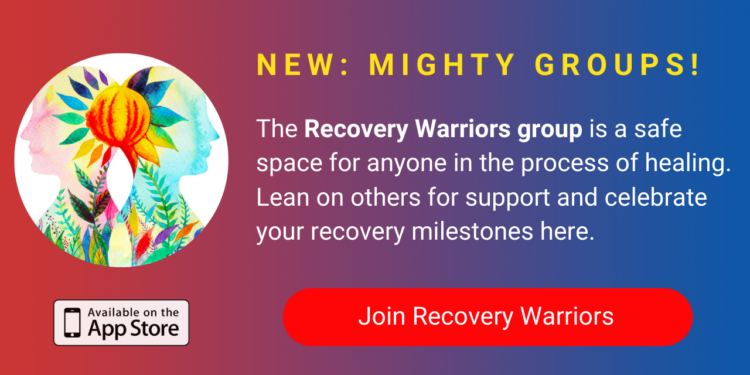How Embodied Cognition Helps Me 'Listen to My Body'
In both eating disorder treatment and other healing spaces, I have often been encouraged to “listen to my body.” My providers and peers have asked me to identify physical sensations that correlate with particular emotional or bodily phenomena; most often, the focus is on identifying and responding to hunger, but I have also been advised numerous times to identify where I feel emotions such as sadness, grief, anger and anxiety physically in my body.
I do not mean at all to dismiss the value of being more aware of physical sensations occurring in one’s body. There have been many times when it has been helpful for me to identify the physical sensations that accompany various emotions. And of course, responding to the physical sensations of hunger can be a major component of eating disorder recovery.
However, I sometimes feel that an emphasis on identifying and responding to one’s physical sensations can lead to a dismissal of or trivialization of emotions, feelings and needs that are not physically discernible.
Many conventional approaches to eating disorder treatment focus on teaching patients to identify physical sensations of hunger and responding to that, rather than emotional or mental hunger. The physical body (i.e. the organs from the neck down) is seen as the “true self” that needs to be closely monitored; the mind (i.e. the brain) is seen as a nuisance and interference that distorts the needs and desires of this true self.
For me personally, this has perpetuated some of the same rigid and obsessive thinking that contributed to my eating disorder in the first place. The physical sensations I felt became something I needed to monitor, analyze and discern. On the other hand, I felt my emotional and mental desires for food were not valid.
I remember one group session in which we learned it was important to discern our physical cravings for food from our mental or emotional desires for food. If we wanted a burger because our physical body (i.e. organs below the neck) craved one, by all means, we should go ahead. But if we wanted a burger because we just heard our friend or family member rant about how McDonald’s is making everyone fat and disgusting and bringing about the destruction of America, and we wanted to rebel against that by eating a burger, it means we didn’t actually want the burger — only our minds did. To me, this felt incredibly invalidating. Were my anti-diet culture, anti-sizeism values not a legitimate part of me that could influence my desires for food and hunger levels in a valid way?
Similarly, when recounting traumatic experiences of abusive body shaming and food shaming, I have been asked to focus on where the emotions feel in my body. “The story doesn’t matter,” I have heard clinicians and peers say. When analyzing the ways that patriarchy, white supremacy and other forms of structural oppression may have contributed to my experiences, I have been told that I’m “stuck in my head.”
“You’re making this top cognitive,” some of my peers have said. “You need to be more embodied.” This has felt invalidating and dismissing of the cultural and interpersonal factors that play a role in my experience; while those factors may not always be physically felt or measurable, they are very real.
Embodied cognition, i.e. the idea that our minds/mental and emotional processes is inseparable from our physical bodies, has been tremendously helpful to me during my recovery. Learning about this idea has taught me that my thoughts, feelings and physical sensations are interdependent on one another, and no one of these components defines me or represents my “true self” any more than the others. The physical sensations of hunger can make me quite irritable and anxious emotionally; it is similarly possible for the emotion of irritability or anger to cause physical hunger. It is also quite possible for me not to feel a physical sensation accompanying every thought or emotional reaction I have, and that is perfectly valid as well.
Just because I cannot locate an emotion or thought within a physical part of my body does not mean that the thought/emotion is not originating from me/from my body. Although abstract thought processes and emotional processes sometimes cannot be physically felt or measured, that does not make them any less real or embodied; they are still bodily processes that require (usually) a beating heart and breathing lungs to occur.
Embodied cognition has taught me that “listening to my body” or “getting in touch with my body” doesn’t have to involve constant hypervigilance and surveillance over my physical sensations. It can involve recognizing the validity of all my thoughts, emotions and sensations and responding to them in a way that aligns with my values and needs. It is my hope that future eating disorder treatment approaches can take a broader view as to what constitutes the body and the self — one that leaves room for the validity of the cognitive and emotional as well as the physical.
Getty image by jesadaphorn


